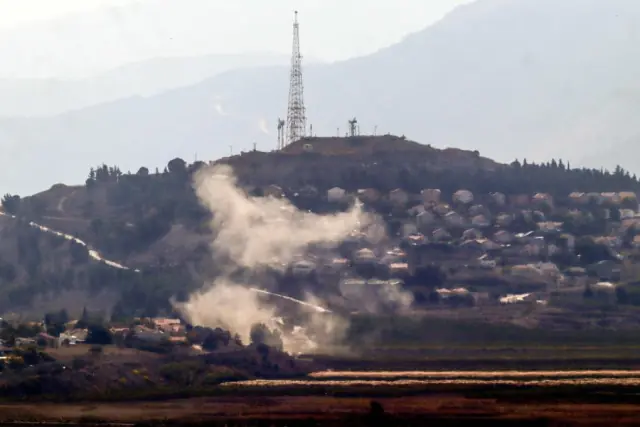In a deadly escalation of hostilities, seven civilians were killed in northern Israel on Thursday as Hezbollah launched a series of rocket attacks from Lebanon.
This marked one of the deadliest days for Israeli civilians in recent months. Rockets struck areas near Metula, a town close to the Israel-Lebanon border, and the outskirts of Haifa, causing devastation in regions with active agricultural work.
The first attack took place on Thursday morning near Metula, where a rocket landed in an apple orchard, tragically claiming the lives of five agricultural workers laboring in the fields.
Later in the day, a second strike near the Haifa suburb of Kiryat Ata targeted an olive grove, resulting in the deaths of two more individuals.
All seven victims were identified as agricultural workers; among them was one Israeli national, while the rest were foreign nationals employed in local agriculture.
In a statement on social media platform X (formerly known as Twitter), the Israel Defense Forces (IDF) expressed outrage over the attack.
“Hezbollah rockets killed 7 innocent civilians inside Israel today. We will not let Hezbollah’s deadly attacks go unanswered,” the statement read, highlighting the gravity of the incident and Israel’s resolve to respond decisively.
Israel Launches Counterstrikes on Hezbollah Infrastructure in Syria
In retaliation, the IDF launched targeted airstrikes on Hezbollah installations in Syria, specifically focusing on infrastructure associated with the group’s military capabilities.
Relying on intelligence reports, the Israeli Air Force (IAF) conducted strikes on weapons storage sites and command centers belonging to Hezbollah’s Radwan Forces and Munitions Unit in Al-Qusayr, a strategic area near the Syrian-Lebanese border.
The IDF identified these targets as part of a broader campaign to neutralize Hezbollah’s logistical framework, which it asserts has expanded operations in Al-Qusayr to facilitate the transfer of arms from Syria into Lebanon.
Among the primary targets was Unit 4400, a Hezbollah division responsible for smuggling Iranian weapons into Lebanon via Syria.
The IDF stated that this unit plays a pivotal role in ensuring the flow of advanced weaponry, including precision-guided munitions, from Iran to Hezbollah forces.
Rising Tensions on the Israeli-Lebanese Border
The IDF has expressed ongoing concerns over Hezbollah’s increased activities in Syria and Lebanon, viewing them as a substantial and escalating threat to Israeli security.
According to IDF sources, Hezbollah has intensified its attacks on Israel’s northern region over the past several weeks, prompting heightened military readiness along the border.
Thursday’s attack underscores the evolving risk for civilian populations in northern Israel, many of whom work in exposed, rural areas near the border where rockets have become a frequent hazard.
Analysts warn that the exchange of strikes between Hezbollah and Israel reflects a broader regional tension involving Iran’s influence in Syria and Lebanon.
This dynamic has resulted in more frequent confrontations and an increasingly complex security landscape for Israel, which is navigating simultaneous threats from multiple fronts.
The recent attack underscores the challenges Israel faces in protecting civilian lives amid rising hostility with Hezbollah.
As Israel responds with strategic airstrikes aimed at disrupting Hezbollah’s supply routes, the IDF has vowed to maintain a heightened military posture to counter further incursions.
The coming days will be critical in determining whether the region is headed toward an intensified conflict or if diplomatic efforts can stave off further violence.
International Reaction
International observers have expressed growing concern over the intensifying conflict and its implications for regional stability. The United Nations has called for de-escalation and urged all parties to avoid further civilian casualties.
However, with tensions high, both Israel and Hezbollah have signaled their readiness to continue defensive operations, each holding the other responsible for the recent surge in violence.

